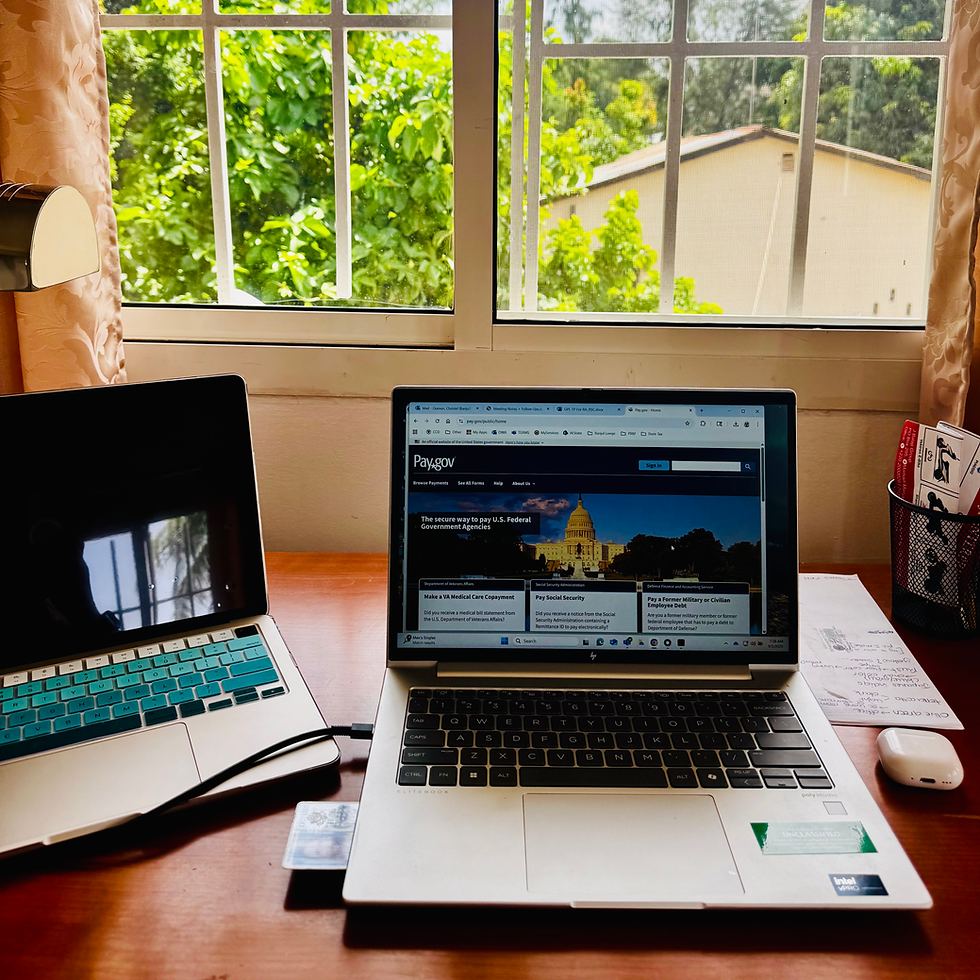My experience with political diplomacy
- Owner

- Feb 15, 2019
- 4 min read
Updated: Feb 22, 2019
My experience with political diplomacy is based on two jobs in wildly different countries: the first was as an assistant in the political/economic section at the US Embassy in Montevideo (Uruguay) and the second was as deputy/acting refugee coordinator in the US Embassy in Islamabad (Pakistan).

As far as I’m concerned, political officers work on tons of extremely interesting issues and often hear the news before it’s actually on the news. They get many opportunities to see complex issues of global significance up close and gain insights into world events and developments that almost nobody else has.
One of the most interesting things I learned while I worked in the political section is how power relations and religious divides in the Middle East work, which really helps explain all the conflicts that are currently going on, predict which country is siding with whom, and why. I learned some of this from taking courses at the Foreign Service Institute, but mostly from working in Pakistan and Afghanistan and talking to people there, from taxi drivers to renowned journalists. Being present somewhere is very helpful when you’re trying to really understand something like that.
When I worked in Uruguay, I learned a lot about Uruguay’s political history, like how the dictatorship in the 70s and 80s still influences the political situation there now, as well as lots of related facts about the rest of the continent that really helped explain why countries are behaving the way they do within the regional and international system. If you’d asked me before that posting what the difference was between Uruguay and Paraguay, or between Argentina and Chile, I wouldn’t have known what to say. Afterwards, I could have given you at least ten pointers on what their political and economic differences are, what their position is within South America and the world more generally, who their allies are, what their political histories are like, how their relationships with the US are, etc.
On the other hand, I didn’t find political work itself very satisfying. I loved learning new things, but I wasn’t enamored with the day-to-day grind of taking meetings, hearing form NGOs how terrible certain populations were treated, cranking out reports, and drafting itineraries for visitors from Washington DC. I often felt there was too much talking and writing, and too few tangible results or—perhaps more accurately—happy outcomes.
Granted, I was a lowly assistant in Uruguay, and I can’t really speak for what my supervisor was doing—mostly because I didn’t know much of the time. And it’s not that I didn’t like any aspect of the work; I loved doing research for the annual reports on trafficking in persons and human rights.
The human rights report is an extensive report that’s mandated by Congress for every country in the world. It’s a big exercise that requires political officers in every embassy to meet with officials and organizations on a variety of topics and report the facts as they are, minimally coated with niceties. The reports incude the latest information and analysis on issues like prisons and torture, trials, freedom of expression and religion, political participation, corruption, discrimination, persons with disabilities, gender and LGBTI issues, and child labor. You can find an overview of the most recent country reports here.
I felt that the human rights reports were an incredibly comprehensive and useful resource for the world. They’re often lauded by organizations working on human rights abuses, such as Amnesty International. Many governments, on the other hand, aren’t much pleased with them—which is no surprise: human rights reports basically air every county’s dirty laundry for the whole world to see.
The annual trafficking in persons (TIP) report was also a big deal, and fun to work on. In Uruguay finding data was challenging because, at the time I worked there, the government wasn’t tracking the number of cases. This was a bit strange because they did have two special prosecutors for TIP cases. So, together with two of my colleagues, I invited myself over to the prosecutors’ offices to, essentially, go through their files. We were thrilled to get such direct access, not in the least because it meant we didn’t have to comb through every single newspaper anymore.
After Uruguay I worked in Islamabad for a year as deputy refugee coordinator. My work requirements were awesome: number one on the list was “ensuring the legal protection of 2 million Afghan refugees on Pakistan’s soil.” When my supervisor left prematurely I was promoted to acting refugee coordinator, which was challenging but incredibly rewarding. I’d always loved the idea of working in the humanitarian sector and this was an amazing way to do so.
But even in Pakistan most of the work involved going to meetings and writing reports. Lucky for me, however, the position also required me to manage several grants to NGOs providing humanitarian assistance. So, when security conditions were acceptable, I traveled around east Pakistan to monitor projects and implementation. It was as much working “on the front line” as I’d ever done and, at least for the foreseeable future, will do.
Read more:







